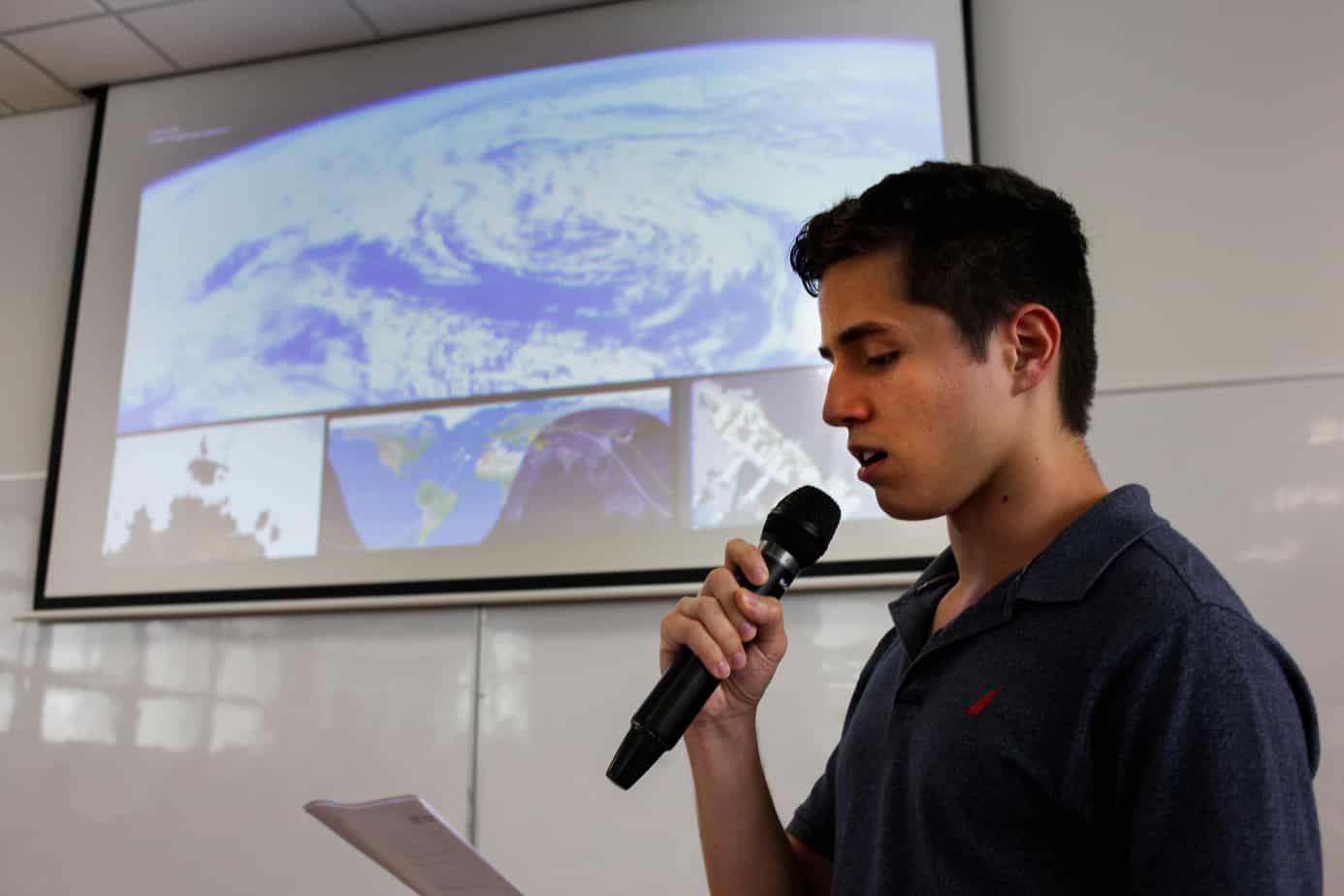While coauthor Ana Luisa Monge and I were doing a workshop at the University of Costa Rica planetarium about our book, “To the Stars: Costa Rica in NASA” (Editorial Tecnologico de Costa Rica), it occurred to me how fun it would be to have some Costa Rican students speak directly with an astronaut aboard the International Space Station (ISS). But how are such things organized?
Video conferences with astronauts on the ISS are usually arranged directly by space agencies and their corresponding astronauts. However, I discovered that opportunities are available for audio conferences with ISS astronauts through an amazing volunteer run organization called ARISS (Amateur Radio on the International Space Station). ARISS is a consortium of ham radio volunteers from nine countries that operates the Amateur Radio Station on the International Space Station.
In September 2018, Canadian Space Agency astronaut David Saint-Jacques kindly introduced me to ARISS Project Coordinator Steve McFarlane. I had been in contact with David since he spoke at a UN space conference in Costa Rica in April 2016. In addition to being an astronaut, David is an astrophysicist, engineer and physician with a long-standing commitment to protecting the health of people in Canada’s isolated northern communities. He launched into space on Dec. 3, 2018 and is scheduled to return to Earth on June 24, 2019.
Connecting with Steve McFarlane formally started the ball rolling toward planning the conference between David and Costa Rican students.
The first steps to arranging an ARISS astronaut conference are to select an appropriate partner organization (in our case, the Space Systems Laboratory at TEC Costa Rica), and to sign a license with ARISS which gets your event on their “to do” list.
During the following weeks and months, details are fleshed out between ARISS and the local partner. The students’ questions must be submitted and confirmed well in advance of the event, which enables the astronauts to prepare their answers. Having the dialogue carefully scripted is especially important if you run into audio problems during the contact. The exact day and hour of the event are not confirmed by ARISS until a week or two before, so local organizers need to take that into account in their planning.
Our conference took place on May 27, 2019 at 10:31 a.m. Central Time with students from TEC Costa Rica’s Cartago and San Carlos campuses. (Read about it in The Tico Times here.)
A week before the event, I learned that the ARISS moderator assigned to us (Brian Jackson) was based in the city of Airdrie, a short distance from Calgary, Canada. Coincidentally I was on a visit back home in Calgary at the time and was thrilled I would be able to watch Brian in action.
In the minutes leading up to the conference, I assisted Brian by translating some of his technical requests into Spanish for our Costa Rican TEC colleagues. They were able to get their sound levels corrected just before before David Saint-Jacques connected with the students.
It was impressive how professionally the Costa Rican students handled themselves in English. The final and vital link in the communications chain was with ARISS radio operator Claudio Ariotti, based in Italy, who formally opened the dialogue with David Saint-Jacques. We breathed a collective sigh of relief when we heard David’s voice coming through.
“I hear you loud and clear,” he said. “I am ready. Welcome everyone aboard the space station.”
The TEC students and David had a dynamic dialogue which can be seen here.
ARISS lets students from all over the world experience the excitement of talking directly with crew members of the International Space Station through the magic of Amateur Radio. I hope we can do more such activities between the ISS and Costa Rican students.
Many thanks to ARISS, the Canadian Space Agency, David Saint-Jacques, and students and staff at TEC Costa Rica’s Space Systems Laboratory. For more information about ARISS please see: https://www.ariss.org/.
Bruce Callow is a Canadian communications consultant and teacher who does space education outreach work on behalf of NASA.






